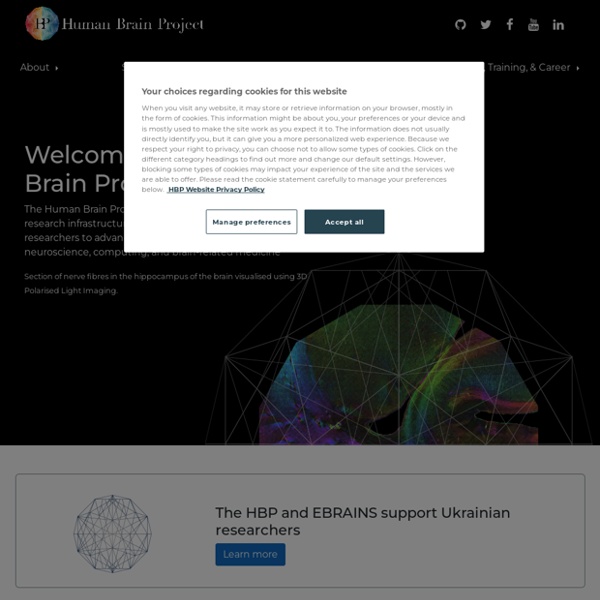



https://www.humanbrainproject.eu/en/
Related: Nature/future of work: AI, robots, telework • Health including its technological challenges • Connected World - cyber and data space, IT/IoT, 3D printing, 5G • Etude du documentaire - JS BronSpain: two agreements signed at Telefónica to guarantee right to disconnect and on how working time register will function - Planet Labor Home » Legal developments » National legislation » Spain: two agreements signed at Telefónica to guarantee right to disconnect and on how working time register will function Spain: two agreements signed at Telefónica to guarantee right to disconnect and on how working time register will function Planet Labor, 19 July 2019, n°11238 - www.planetlabor.com
Global Prevalence of Malnutrition: Evidence from Literature 1. Introduction Malnutrition is a universal public health problem in both children and adults globally [1]. It is not only a public health concern but it is an impediment to global poverty eradication, productivity and economic growth. By eliminating malnutrition, it is estimated that 32% of the global disease burden would be removed [2]. Visa contactless Effective date: January 1, 2020 This notice explains Visa’s approach to cookies and other online data collection technologies. When you visit our websites, use our mobile apps, engage with our online ads or emails, we collect information, using technologies such as cookies, pixel tags (also called web beacons), browser analysis tools and server logs. Each of these technologies is explained below. 1.
As winter bites, employers need to cover working from home costs It was in the summer months that Gareth* first realised that the working from home boon came at a cost. Despite living in a small one-bedroom flat, the SEO manager’s electricity bills had more than doubled. “I knew my usage would increase by a fair bit but certainly not to the level I discovered,” he explains. The ticking time bomb: cardiovascular diseases - Friends of Europe At the end of May, COVID-19 has taken the lives of 360,000 people worldwide and this number will rise for months to come. As healthcare providers focus on this new pandemic, many heart disease patients are being side-lined and risk growing sicker or dying. Could Europe’s response to the virus offer pointers for reforming healthcare systems, benefitting people with heart problems and the wider population? During the Friends of Europe debate ‘The ticking time bomb: Cardiovascular diseases’, livestreamed from Brussels on 28 May 2020, four online participants from European institutions and the medical industry explored lessons learned from tackling COVID-19. In the words of Tamsin Rose, moderator and Senior Fellow at Friends of Europe, “This pandemic has changed everything and nothing will be the same – including the way we configure our healthcare.” Participants emphasised how patients with non-communicable diseases, especially heart complaints, have also suffered due to the virus.
Data sovereignty and soft infrastructures are key enablers for the next phase of the European data economy As underlined by the new European data strategy, the European Commission wants to make Europe fit for the digital age and unleash the full benefits of better data usage for everyone. Data is essential for the creation of new business models for data-driven innovations and services. However, there are two things standing in the way of access to sufficient data. One is a growing unwillingness to share data because of privacy and security concerns. Productivity gains from teleworking in the post COVID-19 era: How can public policies make it happen? Differences across countries, industries, occupations and firms in the use of occasional telework before the crisis can be informative about the scope for more widespread use of telework during normal times, as well as about factors that need to be in place to use telework efficiently or that may prevent its use. By way of example, to the extent that factors such as lack of ICT skills, inefficient management practices or tasks requiring physical presence prevent the use of telework and are more common in some countries or types of firms than others, cross-country or cross-firm differences in the prevalence of telework give an indication of the scope for increasing telework via better management practices and public policies aimed at widening access to it. Information on the use of telework before the crisis thereby complements insights gained from the use of telework during the crisis.
Healthy environment, healthy lives - Friends of Europe COVID-19 is highlighting an urgent need to link environment and health policies. It has become increasingly clear that climate change, air pollution, noise, toxic chemicals and other environmental threats are directly impacting on human health. “We need a healthy environment if we want to lead healthy lives,” (03:06) argued Hans Bruyninckx, Executive Director of the European Environment Agency. Fair data economy Sitra’s IHAN project builds a European data economy model, having taken its first steps in Finland. The set of values on which a fair data economy is based combines a human-centric approach, trust, a new sense of community and the principles of sustainable growth. The aim is a human-driven European data market, where companies that use data responsibly and open-mindedly succeed with smart services. The fair data economy will benefit everyone. Data will be shared more freely between different parties.
France: legal adoption of a first set of obligations on platforms employing drivers and riders - Planet Labor France: legal adoption of a first set of obligations on platforms employing drivers and riders Planet Labor, 20 November 2019, n°11497 - www.planetlabor.com On 19 November the framework law on mobility was definitively adopted. This piece of structuring legislation seeks especially to develop new mobility solutions and reduce the environmental footprint. However it also contains provisions aiming to regulate digital work platforms by safeguarding certain rights for platform workers.